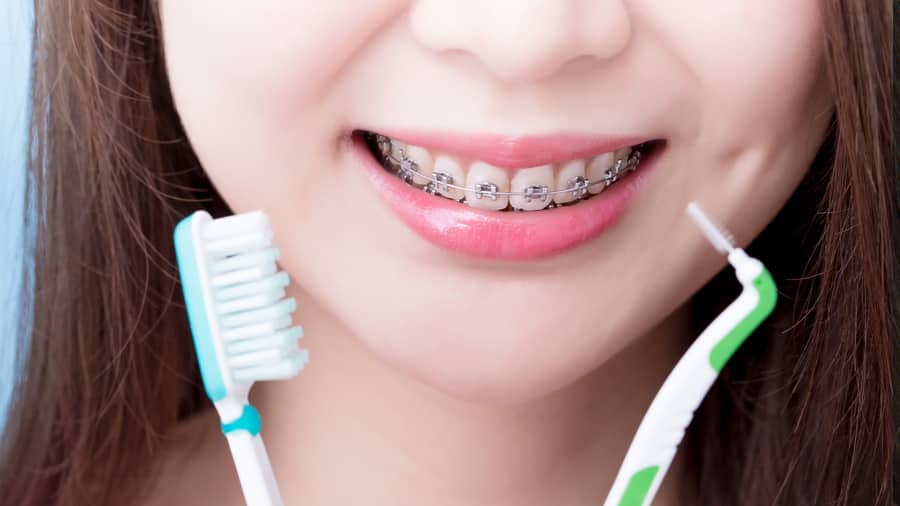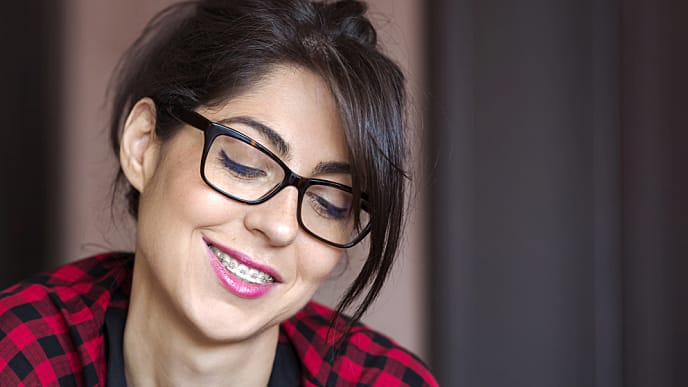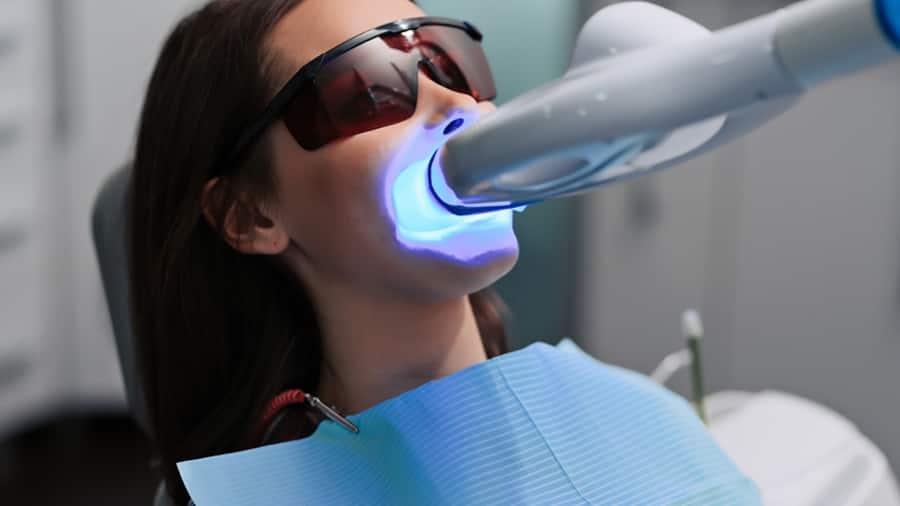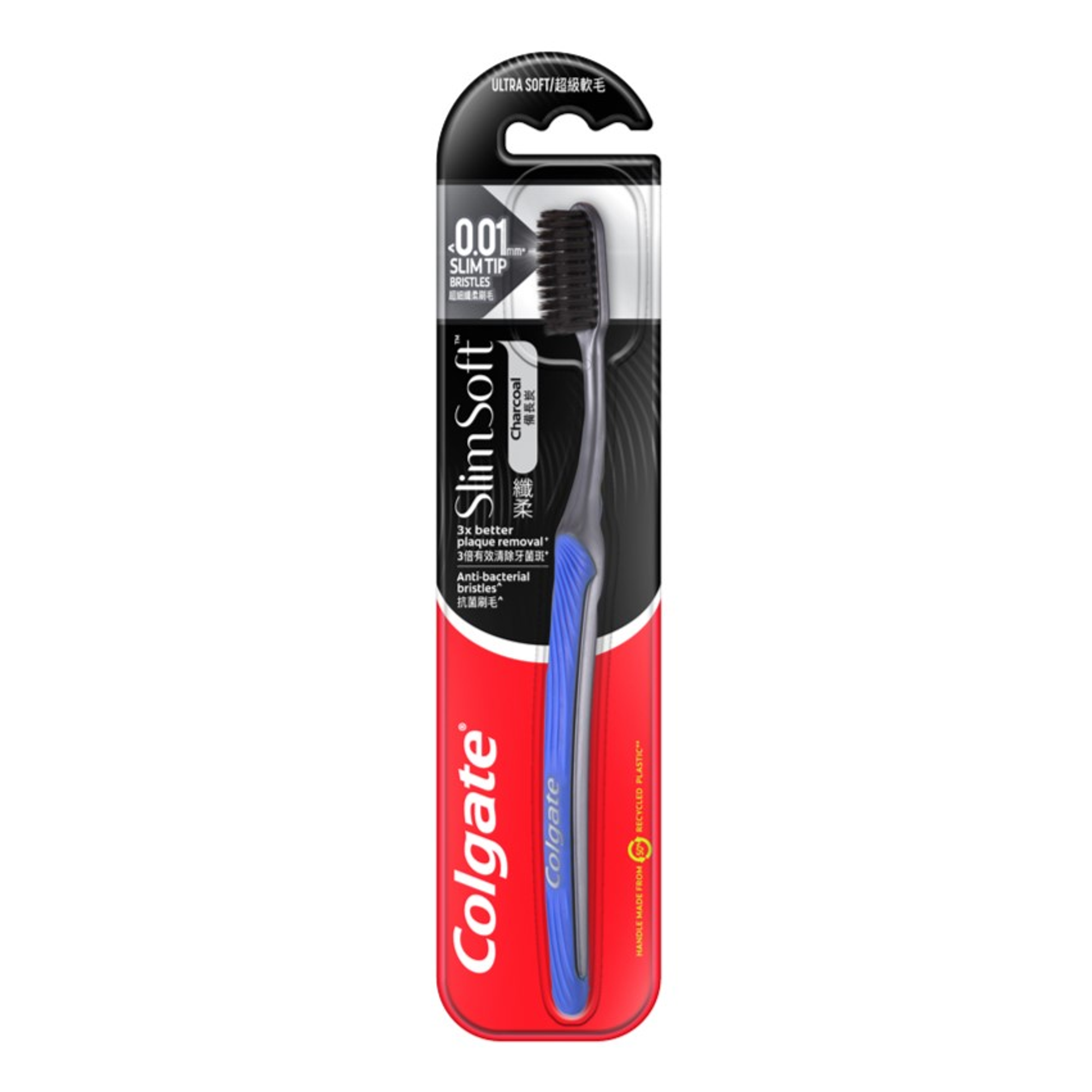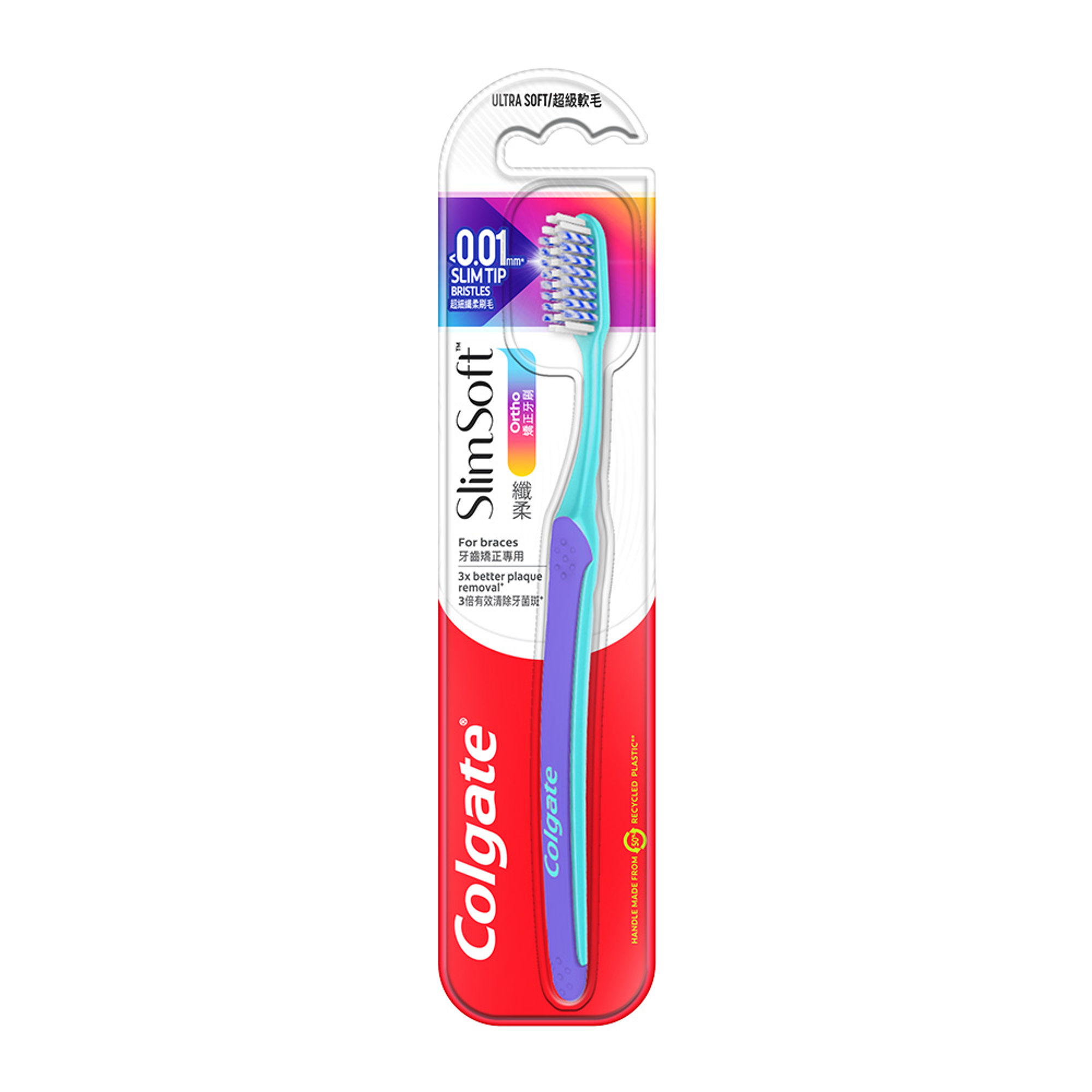Regardless of whether your braces are metal or clear plastic, brackets and wires can trap food particles much more easily, increasing your risk of bacteria build-up. The Singapore Ministry of Health (MOH) reported in 2014 that one in four Primary 6 pupils had caries on their permanent teeth the year before. Needless to say, cavities are still a major concern, and wearing braces makes attention to oral care even more important.
Designed to Dislodge
Metal braces, still the most common type, are attached onto each tooth using tooth coloured filling material (composite resin), joined and tied together by an arch wire and coloured elastic rings, as detailed in this DoctorxDentist article. Brackets attach to the tooth with a cohesive bonding material, while an arch wire connects these brackets to one another so they can gradually move teeth into a straighter position. Keep in mind food can get caught between the arch wire and individual brackets, and an effective toothbrush for braces should be able to dislodge this debris.
Brushing Head with Soft Round Bristles
There's no current scientific indicator that shows one toothbrush is best at getting rid of plaque. Rather, diligent brushing is what's most important whether or not you're undergoing orthodontia. MOH does not recommend any one type of toothbrush particularly but asks you to consider your own preference, and if using an electric toothbrush will encourage you to brush your teeth after every meal, then use it, and choose one with a round oscillating head. That said, you don’t have to buy an electric toothbrush; any toothbrush with soft round bristles will do the job.With this in mind, regular use of your preferred toothbrush can help you better clean the margins of your gum line where bacteria can build up.
Soft to Prevent Irritation
Braces can create discomfort all on their own, especially when they're first put on and after adjustments to items like the expander. So, limiting discomfort and irritation is just as important as proper brushing when deciding on a toothbrush for braces. And the best toothbrushes have certain things in common:
A brush with a wide handle. The right-sized handle can help you grasp the brush more firmly. If you're choosing a brush for your child, the handle should be somewhat larger to afford them more control over each brushing stroke.
Soft, nylon bristles. Hard-bristled brushes can wear down enamel and aggravate gums that may already be sore from a recent orthodontics adjustment. Soft-bristled brushes can clean just as effectively without doing this harm.
Round-ended bristles. The American Dental Hygienists' Association shows that bristles with a rounded end can better protect oral tissue – which includes all parts of your mouth – from damage.
For Younger Kids, Always Supervise
When you've found a brush with soft, round-ended bristles and a good grip, you also want to make sure your child is using it correctly. For starters, supervise younger kids between the ages of seven and eight when brushing to make sure they're developing good brushing habits as they acclimatise to their braces. Of course, it doesn't hurt to check on children a little older when they first start wearing braces and give them a thumbs-up when they've cleaned well and correctly.
If you or your child truly struggles to keep braces clean, using your toothbrush – twice daily for two minutes each time – can help you access the hard-to-reach areas. As for places like the back molars, daily flossing will still help to clear out debris hidden behind the arch wire.





